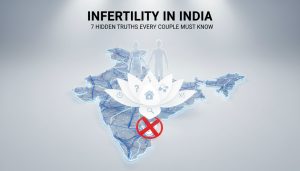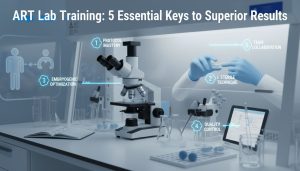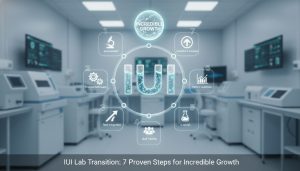Donor insemination is a fertility treatment that involves the use of a sperm donor to conceive. Insemination generally refers to intrauterine insemination (IUI) with a donor or the sperm of an intended parent, but donor insemination can also be used with intravaginal insemination or as part of an IVF cycle. Between 2006 and 2010, approximately 700,000 women between the ages of 25 and 44 underwent insemination procedures. However, the actual rate of insemination is likely to be much higher. In the United States, donor insemination is not tracked, making it currently impossible to obtain the exact number of procedures and the resulting births. Donor insemination may be the way you choose to raise your family. This is what you need to know.
Who Needs Donor Insemination To Get Pregnant?
An individual or a couple may consider donor insemination for a number of reasons. Infertile couples facing severe male infertility (azoospermia or extremely low sperm count2) may consider donor sperm. For some of these couples, IVF with ICSI and TESE or TESA may be another option they consider before moving on to donor sperm. TESE stands for testicular sperm extraction and TESA stands for testicular sperm aspiration. Sperm mature in the laboratory until they are ready to inseminate an egg via IVF-ICSI, in which a sperm is injected directly into an oocyte. However, this is not an option for all couples.
For some men, even TESE and TESA cannot retrieve viable sperm for IVF. Another problem with IVF-ICSI with TESE / TESA is that it can be prohibitively expensive. Donor insemination is not cheap, but it is significantly less expensive than IVF-ICSI with TESE / TESA.
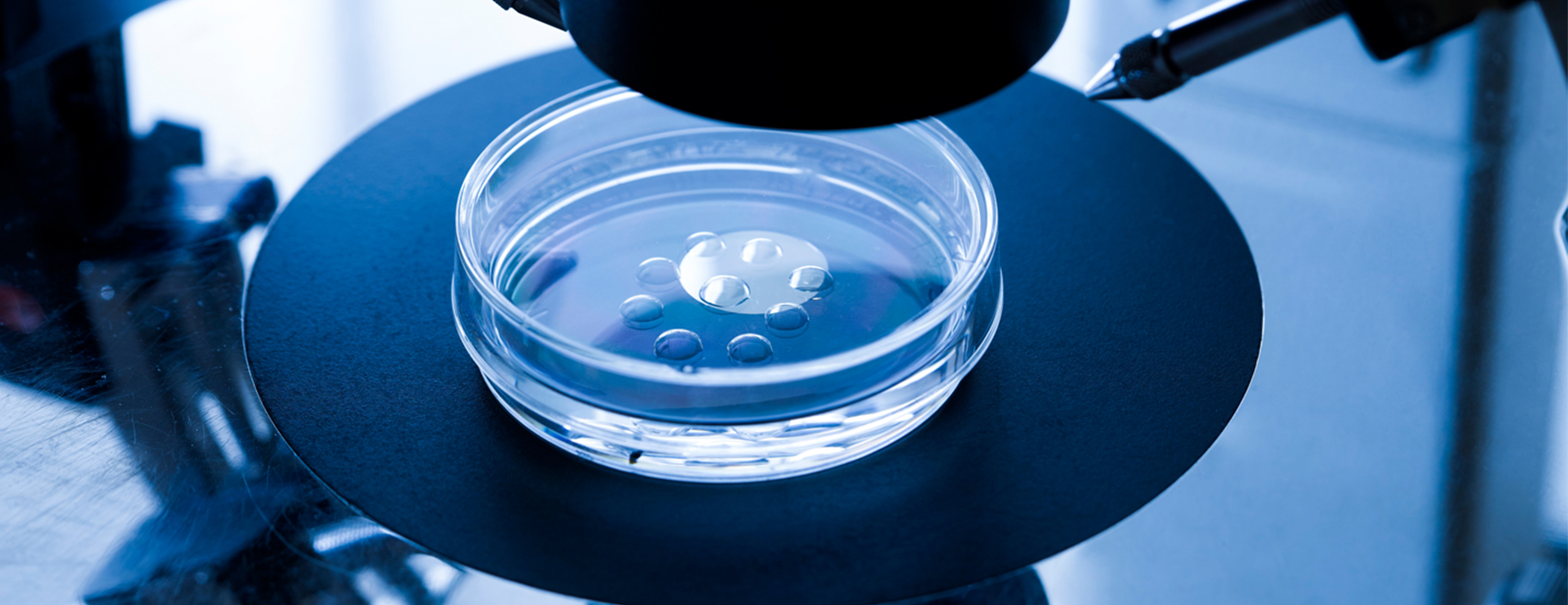
Another reason why a couple may choose donor sperm over IVF-ICSI with TESE / TESA is the increased risk of transmitting male infertility to a male child. Some prospective parents agree with this risk, while others don’t.
The vast majority of sexually transmitted infections can be treated. However, there are a growing number of STIs that are resistant to antibiotics. Sometimes IVF can be used to reduce the risk of transmitting the disease to the female partner, but not all couples want to go that route. For these couples, donor insemination could be a possible path to parenthood.
If a male partner is HIV positive and the female partner is HIV negative, there may still be a chance that the couple will have a genetic baby together without transmitting HIV to the female partner. This involves the use of antiviral medications and sperm washing. Talk to your doctor about your personal situation.
As mentioned above, treatments such as TESE or TESA can sometimes be used in conjunction with IVF-ICSI to allow a couple to have a genetic child together. However, not all couples can or want to follow this option. They may want to see donor insemination as a path to parenthood.
Concerns about Genetic Or Inherited Diseases On The Part Of The Male Partner
In some cases, IVF with PGD, a method of detecting genetic diseases, can be used. However, some couples would prefer to use a sperm donor.
In rare cases, couples who are Rh incompatible may consider donating a sperm. This can usually be resolved with treatment, but if the female partner cannot receive the Rhogam injection, due to an allergy, for example, a sperm donor may be another option.
Women who want to have a baby but do not have a partner may consider obtaining donor sperm. Lesbian couples frequently look for a sperm donor to have a child.
What Happens Before the Donor Insemination Process?
The steps prior to the actual insemination of the donor will vary depending on your situation.
For example, have you been trying to have a baby for a while and this is your next step in fertility treatment?
Or are you starting to consider starting a family and donor insemination is your chosen path?
With this caveat in mind, here is what to expect before your donor insemination cycle. First, you will want to find a primary care provider or fertility clinic that can oversee your donor’s insemination process and cycle.

Usually, it will be a fertility clinic, but some gynaecologists and midwives offer guidance and support during donor insemination. Whenever looking for a doctor or clinic, consider not only their success rates but their attitudes as well.
This is especially important for single women and lesbian couples looking to have a baby. You want to be in an environment that welcomes and accepts your lifestyle. Even if you have no known fertility problems, you will want to have at least a basic fertility test before attempting donor insemination. Why have basic fertility tests?
The main advantage is to avoid wasting time and money on donor insemination cycles that are unlikely to be successful. For example, you may have blocked your fallopian tubes due to an undiagnosed infection.
You cannot get pregnant with donor insemination if your tubes are blocked. Another example, maybe you have an undiagnosed ovulation problem. You could benefit from adding fertility drugs to your insemination cycles, but you wouldn’t know it if you didn’t test first.
Basic fertility tests include Basic gynaecological exams such as a Pap smear and tests for sexually transmitted infections, Hormonal blood test, A specialized X-ray known as an HSG, A pelvic ultrasound, specifically an astral follicle count (especially if you are 35 years old or older).
Getting a fertility test does not guarantee that your insemination cycle will be successful, but good results at least indicate that the chances are in your favour. Your doctor may or may not require advice before proceeding with a donor insemination cycle. This depends on your situation and how you came to this decision about building a family.
Regardless of whether or not your healthcare provider recommends counselling, you should seriously consider seeking it yourself before proceeding.
Find A Sperm Donor
There are several places where you can find a sperm donor, including:
- Fertility clinics
- Sperm banks
- Your personal connections
When looking at sperm donors found through a clinic or sperm bank, you will also hear terms like “semi-open” and “anonymous” donor agreements.
This refers to the ability to have contact between your future donor-conceived child and the donor. General advice these days favours semi-open arrangements because it allows at least one contact between the donor-conceived child and the sperm donor.
If you decide to use someone you know, also known as a “known donor,” be aware that there are many legal and psychological complexities involved.

There have been cases where known sperm donors later decided to sue and attempt to obtain parental rights, and there have been cases where women who have used a known sperm donor tried to sue the donor for child support payments. These problems have even occurred with contracts signed before the donor insemination took place.
Choosing a Sperm Donor
The process of choosing a sperm donor is personal. There really is no right or wrong way to decide, but there are some basic things to know before starting your search. Sperm bank databases contain varying amounts of information.
You will likely find at least one photo (usually of the donor as an infant or toddler) and some personal details such as their profession. Some donor databases will also give you likes and dislikes personality and IQ test results.
Keep in mind that your donor-conceived child is not destined to have exactly the likes and dislikes as a donor. Think about how much you have in common with your genetic mother and father, assuming you know them. You may have a few things in common, but in other ways, it is likely very different. Some factors you can consider when choosing a donor include:
- For example, you may want a donor with the same hair and eye colour as your partner.
- Blood type. This is especially important if the woman who will be pregnant is Rh-negative.
- Medical and psychological history. Information about a donor’s health and family health history can help assess health and genetic disease risk.
- While you can’t be sure, you may be able to guess based on a donor’s responses to questions found in the database.
The Donor Insemination Cycle
What your donor insemination looks like depends on the type you plan to have. Three types of donor insemination are used, and each option has advantages and disadvantages.
- Intracervical insemination (ICI) or intravaginal (IVI)
- Intrauterine insemination (IUI)
- IVF with donor sperm
Generally speaking, IUI is the most widely used method because the success rate is slightly higher than intravaginal or intracervical insemination. IVF with donor sperm is only chosen if there are fertility problems with the woman who is pregnant.
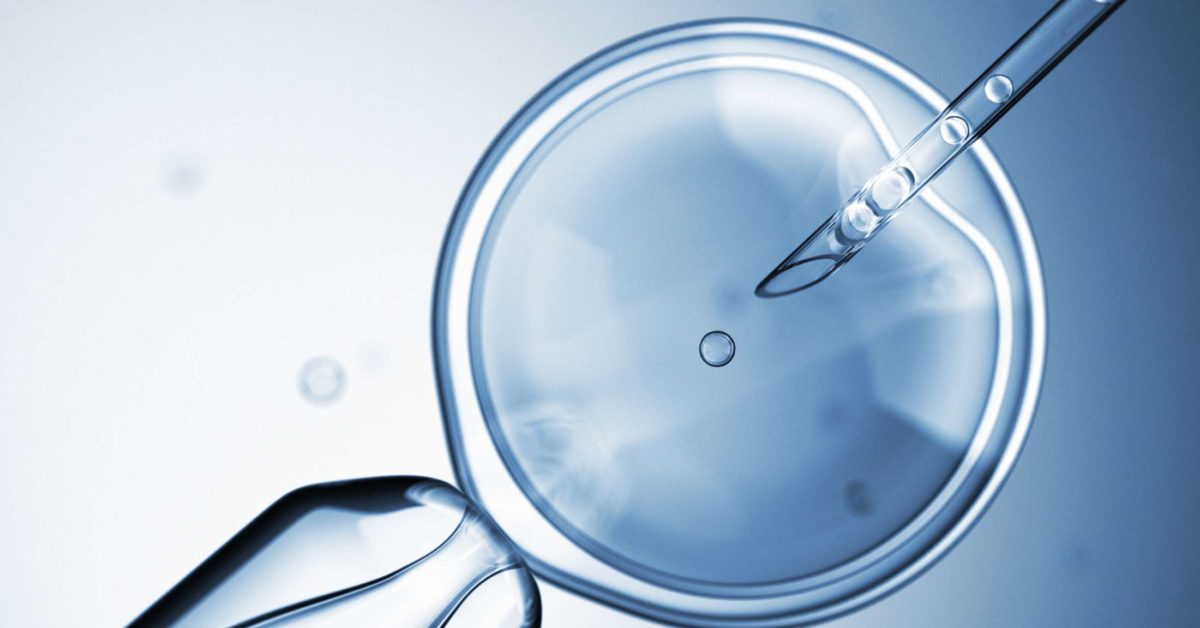
You can have a natural cycle or a cycle with fertility drugs. A natural cycle simply means that you will not take any fertility drugs to stimulate or stimulate ovulation. You only need fertility drugs with insemination if there are ovulation problems in the woman who will carry the pregnancy.
Home Insemination better than Donor Insemination
Home insemination is a simple and direct procedure. Use of hone insemination is an ideal choice that you might want to play out the procedure of artificial insemination at home itself.
When you are going for home insemination the first thing you’ll require is a home insemination kit. Such artificial insemination at-home kits are effectively accessible on the web or possibly at your close by clinical stores.
The self-insemination kit consists of a sanitized needle, cup, ovulation trackers, and so forth. If you are a single parent, you have to get sperms from a neighbourhood sperm giver bank.
The procedure is very basic; you should simply gather the semen in the sanitized cup. At that point, embed it into the needle-less syringe and infuse it into the vagina gradually. Sit tight for 15-20 minutes before continuing your regular activities.
Can A Donor Insemination Be Done At Home?
Doing sperm insemination at home may be more comfortable and convenient, but there are risks to consider. Going to a fertility clinic or doctor’s office is, from a legal and medical point of view, generally the preferred option.
There are several reasons why someone might want to do insemination at home:
- Insemination at a fertility clinic is not romantic and the process can be intimidating.
- Insemination at home will generally cost less than going to a doctor’s office.
- Single women and lesbian couples living in rural areas may find it difficult to find a clinic willing to work with them.
Some donor banks will send donor sperm to your home, along with instructions on how to inseminate yourself. Home inseminations are always vaginal. If you are considering using a known donor (someone you know personally), you should not attempt home insemination.
The law in many places states that donor insemination performed outside of a medical facility with a known person is not legally considered donor insemination.
The sperm donor would be considered the legal father of the child and would have the legal rights and obligations of any biological parent, regardless of signed contracts stating otherwise.
Home insemination kit
As of now examined insemination is a fairly straightforward and simple procedure that can be performed at home. Most couples lean toward performing it at home with the solaces they need.
Numerous organizations produce home insemination kits which are generally accessible for use by anybody. By utilizing a home insemination unit, you can attempt to consider the same number of times as you need. In that case, that you’ve been coming up short in these endeavours it is smarter to counsel a specialist to understand the purpose behind your infertility.
A home insemination kit consists of a sterile needle, a compartment for disinfected semen holder, and a vaginal pipette. These units are accessible on the web or at clinical stores. These can be promptly utilized in the event that you intend to convey the insemination at home but ensure you counsel your gynaecologist before performing.

Is Donor Insemination Safe as compared to Kit?
Donor insemination through a fertility clinic is generally safe. If fertility drugs are not used (which introduces a different set of potential risks), the main medical risks of donor insemination are:
- Risk of infection
- The risk that the donor’s shared family medical history is incorrect
Sperm banks and fertility clinics are in charge of selecting donors and verifying information shared by donors. Still, there have been cases where donors have not shared vital family history information (such as a history of mental illness).
Few studies have been conducted on donor insemination and risk of infection. One study reported that over an 18-year period, 47 women reported infection after donor insemination.
Based on these findings, the researchers estimate the odds of infection from donor insemination to be around 1 in 10,000.
Donor insemination is a path to parenthood that many people take, for a variety of reasons. Making this decision, choosing your donor, and continuing with insemination cycles can be stressful. On the other hand, the process can also bring joy, excitement and hope.
Conclusion
As we see what is done insemination and how women get pregnant with the help of donor sperm, but. Home insemination is an excellent option for many women thanks to the comfort, convenience, and low cost it offers. But it is only one option. And there may be reasons why home insemination is not a good or effective option for you. If you try it and it doesn’t work, remember there are plenty of other options to help you start a family.
For women who do not have fertility problems, home insemination can save costs due to the absence of doctor’s office fees, although a licensed physician must agree to sign the required authorization documentation. Even though pregnancy rates are not as high with this method, many women choose to make this a starting point on their fertility journey and many find success.


